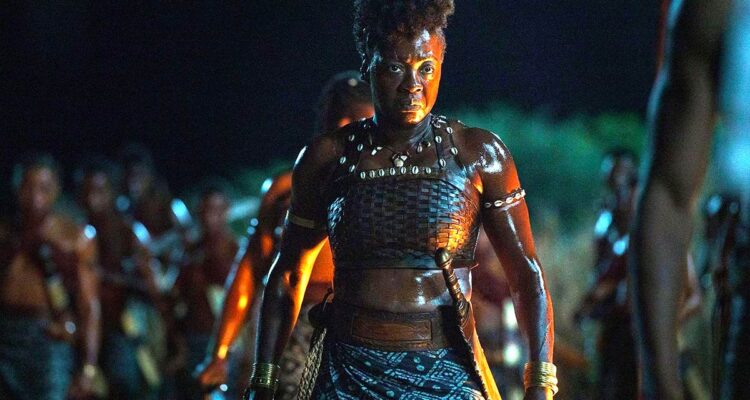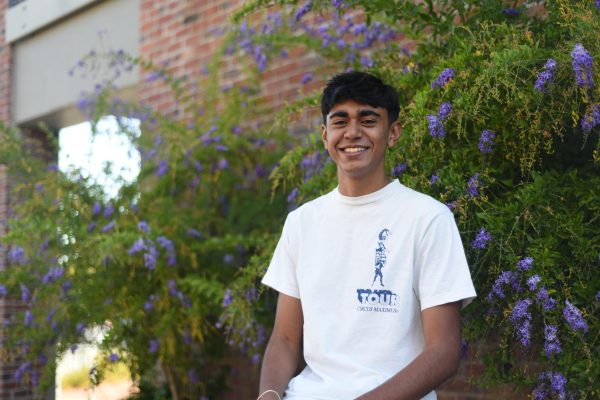‘The Woman King’ delivers both action and heart in a solid Hollywood Blockbuster
The story of a historical all-woman battalion entertains
General Nanisca gets ready to charge in the battlefield. Picture used with permission from TriStar Pictures
September 19, 2022
As a group of men drink whiskey around a campfire, they hear a rustling in the grassy fields and are met by several armed women, led by General Nanisca, played by Viola Davis. “The Woman King,” which was released in theaters on Sept. 16, revolves around the Agojie, a real-life historical group of skilled female warriors protecting the African kingdom of Dahomey.
When newly crowned King Ghezo, played by John Boyega, takes the throne, Dahomey is faced with a new threat, the Oyo Empire. General Nasica, played by Viola Davis, takes charge, and alongside General Izogie, played by Lashana Lynch, trains a new generation of female fighters, one being naive but determined Nawi, played by Thuso Mbedu. Together, the Agojie fight for a cause, to protect their roots, culture, home kingdom and way of life.
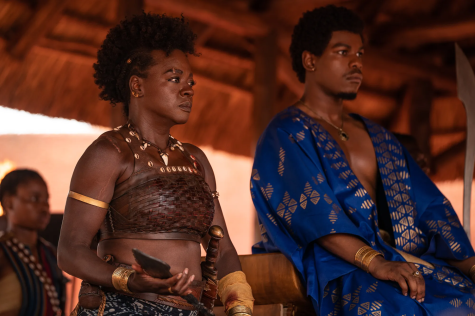
“The Woman King” as a title sets the tone for the movie itself. It is a compelling story of female empowerment that delivers intense action sequences that are a spectacle to behold. It also has a strong emotional aspect to it that gives it just the ‘heart’ it needs. These components cohesively come together to make it a well-rounded blockbuster and offer something for everyone in the audience. The script expands on its characters in a way that most action films don’t — it builds the characters in an engrossing way that gets the audience to care about them. Through seeing the relationships between the characters form, the audience truly gets to know and understand them.
Director Gina Price-Bythewood executes this film beautifully, continuing her trend of representing powerful Black women in lead roles, but on an even larger scale. Putting together an extensive, historically accurate and engaging film was a daunting task. However, Davis, along with screenwriter Dana Stevens, accomplished this gracefully and gorgeously, ranging from high-octane action sequences to potentially even being a tearjerker for some.
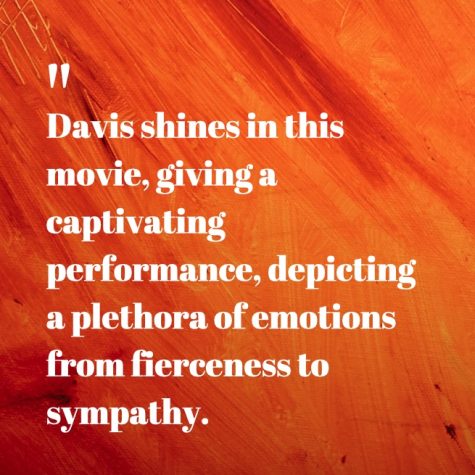
This movie, simply put, is the magnum opus of renowned actress Viola Davis. Davis shines in this movie, giving a captivating performance, depicting a plethora of emotions from fierceness to sympathy. Davis’ extensive intense fitness and weapon and martial arts training is evident in a battlefield scene where she wields a sword and armor as she swiftly combats groups of men. The ensemble cast breathes life into this movie, adding to the atmosphere of Dahomey from the very start when the Agojie is first beginning their training to the very last battle.
On top of that, there are many other aspects of the film that accentuate the overall setting. The costume design, done by Gersha Philips, shows off vibrant and colorful African tribal attire, as well as battle armor for both the Oye empire and the Agojie battalion. All of the costumes were designed with an aim to keep it as historically accurate as possible, paying homage to the time period while also keeping up with the aesthetic of the film, using flamboyant colors and distinct jewelry. The score by Terence Blanchard uses a mix of African Cultural music and current hip-hop music to set the scene, sometimes high-energy and sometimes more solemn. The production design by Akin McKenzie tops it off, putting together the look and aesthetic that is Dahomey. All these elements contribute to making it a truly immersive experience for the audience, to make them feel like they are in the training grounds of the Agojie in Dahomey, or out on the battlefield.
While this movie has several positive aspects, it is burdened with a few issues, such as the overuse of CGI to create landscape shots that are meant to serve as scenic and dazzling but miss the mark, as it is obvious that they are artificial, sticking out compared to the rest of the well-made sets used in scenes. The movie does come with its pacing issues, with an intriguing first act and a well-grounded climax, but barely any story progression in the second act, a lot of which isn’t relevant to the main plotline and leads to nowhere. Even when this movie does a great job of mixing action and character, this sometimes leads to convoluted and unnecessary plotlines. An example of this is a potential romance between Nawi and another character that is introduced later on, foreigner Malik, that takes place near the end of the second act of the film, but only detracts from the main plotline and ends up going nowhere.
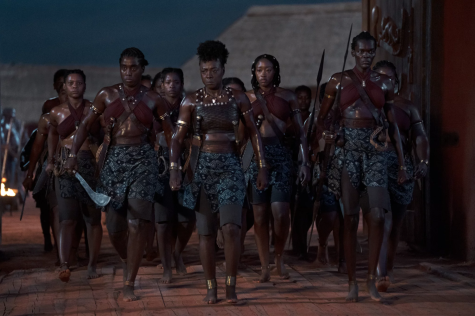
Many controversies surrounded this movie even before its release date, and it received some backlash. “The Woman King” is largely based on true events, telling the story of the Kingdom of Dahomey, one of the most powerful in Africa at the time. However, many people brought attention to the true historical background of Dahomey, the main setting of the film, since the real kingdom was known for attacking the French, enslaving their own people and overall violating their own honor. However, it is important to emphasize that in the end, this movie is strictly a work of entertainment. While largely inspired by these historical events, the filmmakers chose to focus on action and emotion in this story rather than keeping it fully historically accurate.
Overall, none of the major flaws, as well as the controversy about the historical inaccuracies, are enough to shadow the thrill that is “The Woman King.” With heartfelt moments and large battles, it is ambitious, enthralling and spiritually moving.
4/5



